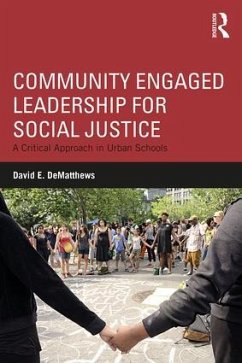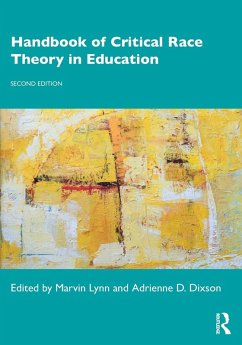
Bell Hooks' Engaged Pedagogy
A Transgressive Education for Critical Consciousness

PAYBACK Punkte
22 °P sammeln!
Educational institutions, like the society in which they exist, may operate with racial, gender, and class biases that marginalize students whose cultural traits and characteristics differ from mainstream norms and practices. However, as bell hooks urges, education can provide the means to "transgress" conventional limitations and biases.
Focusing on bell hooks' social and educational theory, the author of this book deals with the issues of marginality and cultural alienation that are prevalent among certain groups within American society, and presents strategies to help develop critical consciousness.














